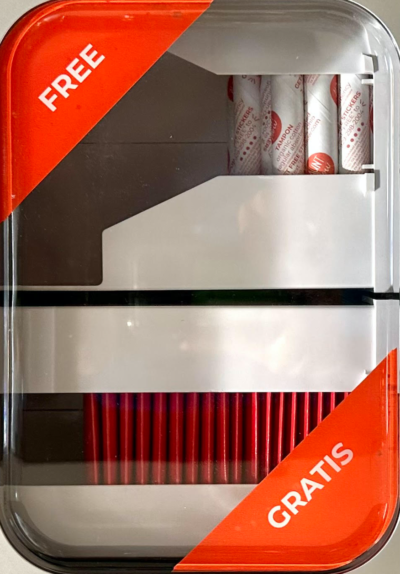Period poverty shows up across the globe. Even in Wellesley, where financial security appears to be prevalent in many ways, access to basic hygiene products is not necessarily guaranteed for all youth. According to a 2014 United Nations Educational, Scientific and Cultural Organization (UNESCO) report, one out of every ten menstruating youth misses school during their menstrual cycle solely because they lack access to period products.
In 2022, Siena Cohen ’23 took the lead in an effort to make period products free across the high school. At first, her group collected donations to fund the purchase of these products, but they hoped that the school budget would make space for the cause in the future.
Cohen ran an Instagram page where she posted updates on the process along the way. Having raised over $2,300 towards the funding of menstrual products by April 2022, bathrooms were finally stocked with disposable menstrual products.
When students returned to school in August, they found that every girls’ bathroom had a full dispensary of school-supplied menstrual products. Her mission having come to life, Cohen praised WPS’s recognition of the importance of supplying menstrual products to its students.
“By ensuring all menstruators have access to essential supplies, we also ensure that their dignity, health, and wellbeing matters,” she said.
The company that services these products is called Citron, and they typically restock supplies every two weeks. The high school offers these products free of charge, vastly increasing the accessibility of hygienic products to students.
Charlotte Elwy ’24 has taken note of the new period products, appreciating the school for pursuing ways to minimize the stigma around periods and also viewing it as an agent of change on a greater level. “It’s a step in the right direction of combatting the pink tax,” said Elwy.
The pink tax is widely known as a markup on goods that are marketed towards women, but not limited to female products. The pink tax is in effect on basic necessities like razors, soaps, and lip balm. On a narrower level, the tampon tax is a legitimate sales tax that some states have placed on menstrual products. According to the Alliance for Period Supplies, 21 states currently charge sales tax (ranging from four to seven percent) on period products, meaning that menstruators in these states pay both the cost of essential items and an additional tax.
In setting up period product stations within the girls’ bathrooms, the high school combats inequity and also tears down walls surrounding discussion on menstruation. While Wellesley’s high schoolers might not find themselves talking about periods daily, school funding of this initiative is a great leap towards normalizing the topic of menstruation across students of all identities.
However, the stations are present only in girls’ bathrooms, prompting discussion on the magnitude of accessibility they provide to students of all identities.
Jason Fico ’24 says that it would be beneficial to keep menstrual products in boys’ bathrooms too, in order to accommodate every student’s needs and bring awareness to the topic.
“This would bring forward more open conversations about menstruation, involving different genders,” he said.
Cohen hopes this kind of advocacy continues on the state level as well, through a proposed bill called I-Am, which aims to increase access to disposable menstrual products in prisons, homeless shelters, and all Massachusetts public schools.

